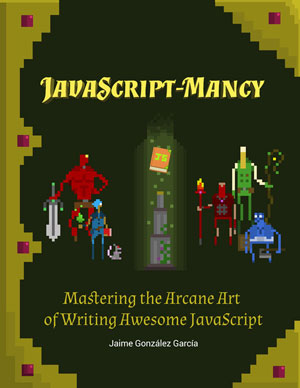Mastering The Arcane Art Of JavaScript-mancy for C# Developers: A Guide to Strings, Finding The Right Words and Proper Spell Intonation
The Mastering the Arcane Art of JavaScript-mancy series are my humble attempt at bringing my love for JavaScript to all other C# developers that haven’t yet discovered how awesome this language and its whole ecosystem are. These articles are excerpts of the super duper awesome JavaScript-Mancy book a compendium of all things JavaScript for C# developers.
An Introduction To Strings In JavaScript
Strings are a primitive type in JavaScript that you can use to represent text literals much in the same way that you do in C#. In this article you’ll learn all you need to know about using strings in JavaScript and the exciting new string features that come with the new version of the language ECMAScript 6: template literals and tags.
Let’s start with the basics first!


